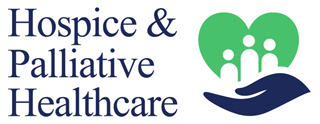Care and Support Services Offered by HP Healthcare LLC
HP Healthcare, and it’s affiliates, provide care for the mind, body and spirit. We empower our patients and encourage them to share their concerns, thoughts and wishes so we can better understand their desires and strive to meet their unique needs.
At HP Healthcare we work closely with the patient’s primary caregivers and doctors. We associate with insurers, local community organizations, and hospitals to ensure the greatest comfort for our patients. This entails addressing the pain, high financial burden and fears that are often associated with an incurable illness.
There are four levels of care provided by hospices in the United States.
Patients receiving hospice services will be on one of these four levels. A hospice patient can move from one level to another depending on the services required to fulfill their needs. The unique needs of the patient, and the physician’s determination of medical necessity, will determine their individual level of care.
ROUTINE HOSPICE CARE – Is the primary level of hospice care. Routine Hospice Care includes intermittent visits from members of the Hospice Team. The location of Hospice Care is determined by where the patient calls home. The number and frequency of visits depends to meet the goals of the individual plan of care.
GENERAL INPATIENT CARE – During a period of time when the patient’s or resident’s condition requires pain control, symptom management inpatient level of care can be provided in a Medicare certified facility, such as a contracted hospice house, nursing home or hospital. GIP for symptom management is a valuable tool that allows hospice staff to provide clinical services to a degree that cannot typically be provided in a patient’s home. It is intended for specific circumstances and for a short duration of time and thus must be carefully managed from start to finish.
CONTINUOUS CARE – During a crisis situation, hourly care can be provided for 8 to 24 hours a day until the crisis is resolved. Continuous home care (CHC) is one of the four levels of hospice care. The definition of continuous home care is meant to include nursing care, covered on a continuous basis for as much as 24 hours a day to achieve palliation and management of acute medical symptoms. Either homemaker or hospice aide services or both may be covered during a period of crisis, but the care must be predominantly nursing care. Continuous home care is only furnished during brief periods of crisis and only as necessary to maintain the terminally ill patient at home.
RESPITE CARE – Available on an occasional basis, inpatient respite care is provided provided in a Medicare certified facility in order to offer a brief rest (up to five days) to families and caregiver.


